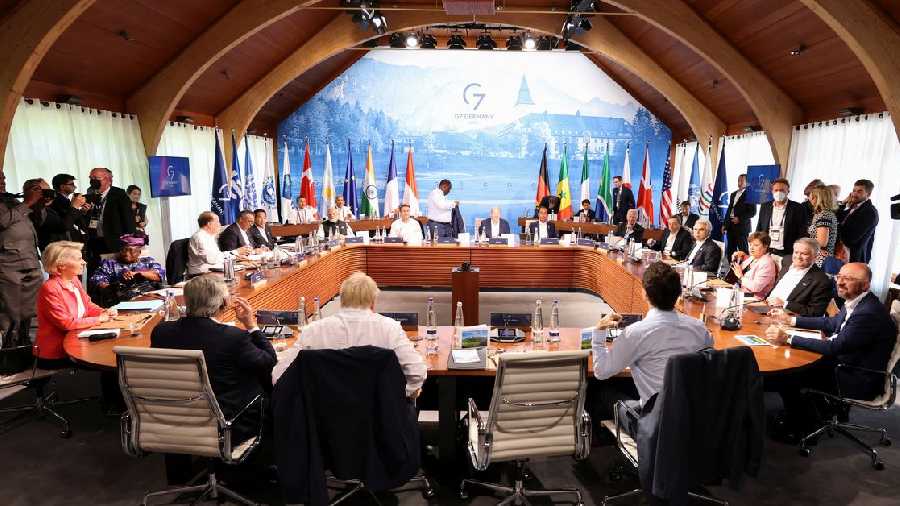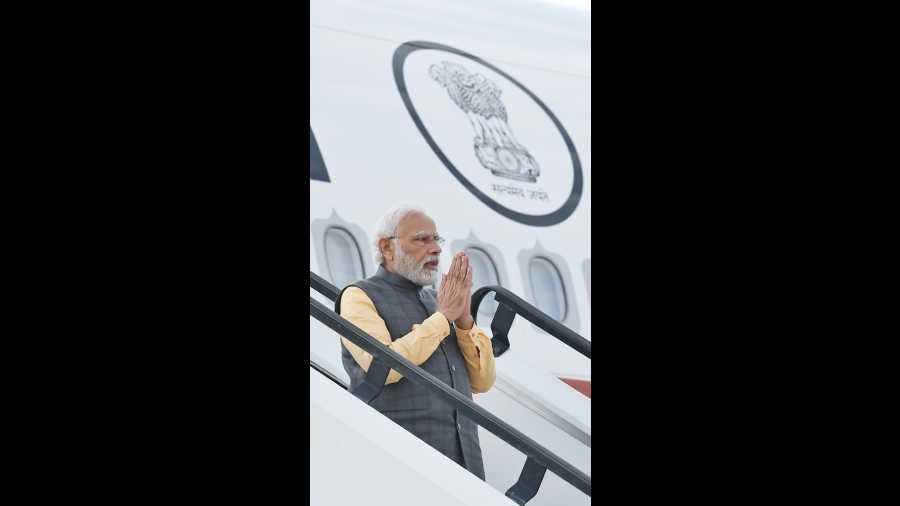Leaders of the powerful G7 grouping and its five partner countries, including India, have said that they are committed to open public debate and the free flow of information online and offline while guarding the freedom, independence and diversity of civil society actors.
In a joint statement titled '2022 Resilient Democracies Statement' issued here on Monday during the G7 Summit, the leaders, including Prime Minister Narendra Modi, said they are prepared to defend these principles and are resolved to protect the freedom of expression.
The joint statement came amidst allegations that the Indian government was stifling the freedom of speech and the civil society actors.
The leaders said democracies enable open public debate, independent and pluralistic media and the free flow of information online and offline, fostering legitimacy, transparency, responsibility and accountability for citizens and elected representatives alike.
The leaders said they resolved to "protecting the freedom of expression and opinion online and offline and ensuring a free and independent media landscape through our work with relevant international initiatives."
They promised to guard the freedom, independence and diversity of civil society actors, speak out against threats to civic space, and respect freedom of association and peaceful assembly.
The leaders pledged to ensure an open, free, global, interoperable, reliable and secure internet; increase the cyber resilience of digital infrastructure, including by improving and sharing awareness of cyber threats and expanding cyber response cooperation and counter hybrid threats, in particular, information manipulation and interference, including disinformation.
They also resolved to cooperate to counter information manipulation, promote accurate information and advocate for shared democratic values worldwide.
They vowed to promote affordable access to diverse sources of reliable and trustworthy information and data, online and offline, including through a multi-stakeholder approach, and by strengthening digital skills and digital literacy.
They also pledged to enhance transparency about the actions of online platforms to combat violent, extremist and inciting content online in line with the Christchurch Call to Action.
The Christchurch Call is a commitment by governments and tech companies to eliminate terrorist and violent extremist content online.
They said democracies "lay and protect the foundations for free and vibrant civic spaces, enabling and encouraging civic engagement and political participation, which in turn stimulate meaningful legitimacy, creativity, innovation, social accountability, and responsibility."
The leaders said they are committed to building resilience against malign foreign interference and acts of transnational repression that seek to undermine trust in government, society and media, reduce civic space and silence critical voices.
The leaders pledged to advance programmes for the protection of human rights defenders and all those exposing corruption; promote academic freedom and strengthen the role of scientific evidence and research in democratic debate; protect civic space, and uphold transparent, accountable, inclusive and participatory governance, including by advancing women's full, equal and meaningful participation and leadership in civic and political life.
The Group of Seven (G7) is an inter-governmental political grouping consisting of Canada, France, Germany, Italy, Japan, the UK and the US.
Besides India, Germany, the host of the G7 Summit, had also invited Argentina, Indonesia, Senegal and South Africa as guests for the summit to recognise the democracies of the global south as its partners.












